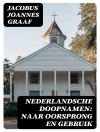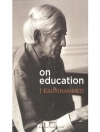As the only multi-paradigmatic collection of research in the field, this Handbook brings together a comprehensive range of essays to serve as a fully inclusive resource. Deanna L. Fassett and John T. Warren, along with two section editors and twenty-nine additional contributors, provide a balanced overview of various paradigms in the field—social scientific, interpretive, and critical.
Key Features
- Three sections, addressing overlapping issues in communication and instruction, collectively represent multiple paradigms. This allows the reader to experience the depth and nuance available in communications studies.
- Each perspective is granted its own foundational chapter to provide an orientation to the discipline.
- Each contributor sets the agenda for their approach, helping the reader identify where the field is headed and where future research might be beneficial.
- Besides reviews of extant literature, demonstrating where the field has been, this Handbook also includes chapters that share topical new findings.
SECTION I: Communication Education
Ann Darling, Section Editor
SECTION II: Instructional Communication
Scott A. Myers, Section Editor
SECTION III: Critical Communication Pedagogy
John T. Warren and Deanna L. Fassett, Section Editors
This Handbook will benefit scholars, graduate students, and general readers—irrespective of method or disciplinary background—who are interested in the connections between communication and instruction.
Tabela de Conteúdo
Introduction: Critical Communication Pedagogy – Deanna L. Fassett and John T. Warren
SECTION I: Communication Education
Chapter 1: Communication Education: An Association of Radicals – Ann Darling, Section Editor
Chapter 2: The Philosophical and Methodological Foundations of Communication Education – Keith Nainby
Chapter 3: The Basic Course in Communication: Where Do We Go From Here? – Deanna D. Sellnow and Jason M. Martin
Chapter 4: Communication Across the Curriculum Problematics and Possibilities: Standing at the Forefront of Educational Reform – Deanna P. Dannels
Chapter 5: Communication and the Preparation of Future Faculty: Learning to Manage Incoherencies – Katherine Grace Hendrix
Chapter 6: Communication Textbooks: From the Publisher to the Desk – Matt Mc Garrity
Chapter 7: Learning through Service: The Contributions of Service Learning to the Communication Discipline – Jami L. Warren and Timothy L. Sellnow
SECTION II: Instructional Communication
Chapter 8: Instructional Communication: Section Introduction – Scott A. Myers, Section Editor
Chapter 9: Philosophical and Methodological Foundations of Instructional Communication – Jennifer H. Waldeck, Timothy G. Plax, and Patricia Kearney
Chapter 10: Power, Compliance, & Resistance in Classroom – Rebecca M. Chory and Alan Goodboy
Chapter 11: Instructor Immediacy: Creating Conditions Conducive to Classroom Learning – Paul L. Witt, Paul Schrodt, and Paul D. Turman
Chapter 12: Humor and Communication in Instructional Contexts: Goal Oriented Communication – Melanie Booth-Butterfield and Melissa Bekelja Wanzer
Chapter 13: Clarity in Teaching and Learning: Conundrums, Consequences and Opportunities – Scott Titsworth & Joseph P. Mazer
Chapter 14: The Relational Side of Instructional Communication: An Examination of Instructors? Presentational Communication Traits – Matthew M. Martin & Scott A. Myers
SECTION III: Critical Communication Pedagogy
Chapter 15: Critical Communication Pedagogy: A Reframing of the Field – John T. Warren and Deanna L. Fassett, Section Editors
Chapter 16: The (Critical) Pedagogy of Communication and the (Critical) Communication of Pedagogy – Leda Cooks
Chapter 17: Critical/Performative/Pedagogy: Performing Possibility as a Rehearsal for Social Justice – Bryant Keith Alexander
Chapter 18: When Will We All Matter?: Exploring Race, Pedagogy and Sustained Hope For The Academy – Bernadette Marie Calafell
Chapter 19: Critical Race Theory and Critical Communication Pedagogy – Jennifer S. Simpson
Chapter 20: Communication & Sexuality – Karen Lovaas
Chapter 21: Producing Digitally Mediated Environments as Sites for Critical Feminist Pedagogy – Radhika Gajjala, Natalia Rybas, Yahui Zhang
Sobre o autor
John T. Warren (Late) was professor of Speech Communication at Southern Illinois University, Carbondale. His major research and teaching centered in Communication Pedagogy, Performance Studies, and Communication and Critical/Cultural Studies. He was the author of numerous books including Performing Purity: Whiteness, Pedagogy and the Reconstitution of Power; Casting Gender: Women and Performance in Intercultural Contexts; Critical Communication Pedagogy; and the SAGE Handbook of Communication and Instruction. He also authored articles for several education and communication studies journals, including Educational Theory, Communication Education, and Text and Performance Quarterly.












